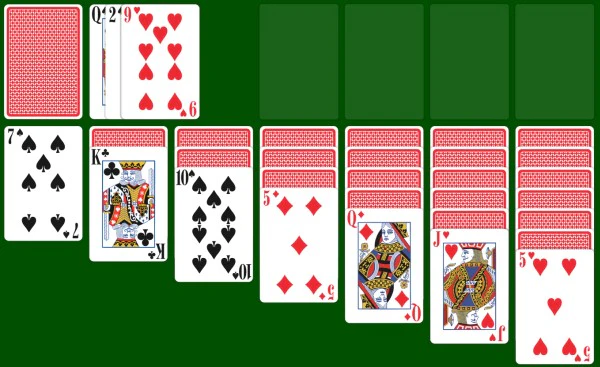Solitaire has long been viewed as a quiet and relaxing game, often played in moments of solitude to pass the time. But beyond its reputation as a casual pastime, Solitaire offers a surprising number of cognitive advantages. Regularly engaging in Solitaire can enhance memory, boost concentration, develop problem-solving skills, and even support emotional well-being. As modern life continues to demand mental agility, incorporating games like Solitaire into your routine can be a simple yet effective way to keep the mind sharp.
With the rise of online gaming platforms, it’s now easier than ever to access a wide variety of Solitaire Card Games from any device. These platforms provide quick access to different versions of Solitaire, offering both convenience and a mental workout. Whether you’re playing for a few minutes or engaging in a longer session, the benefits to your brain remain consistent.
Enhances Memory and Recall
One of the most notable cognitive benefits of Solitaire is its positive impact on memory. Players must remember card placements, sequences, and potential moves throughout the game. This constant mental tracking activates both short-term and working memory. Over time, this type of cognitive engagement can improve a person’s ability to recall information more effectively in everyday life.
Moreover, playing multiple variants of Solitaire encourages flexible thinking, helping the brain retain new rules and adapt to changing gameplay strategies—activities that stimulate the hippocampus, the part of the brain associated with memory formation.
Improves Focus and Concentration
Solitaire is a game that demands attention. Success in the game hinges on your ability to observe, plan ahead, and avoid impulsive decisions. Whether flipping cards from the deck or deciding which column to build, every move requires deliberate thought. This sustained attention builds mental discipline, which can carry over into work, study, or other tasks that require prolonged focus.
By practicing concentration in a low-stress setting, players can strengthen their ability to stay engaged in more demanding or high-pressure environments. It’s an ideal mental exercise for both young learners and older adults seeking to maintain cognitive sharpness.
Boosts Problem-Solving Skills
Strategic thinking is at the heart of every game of Solitaire. Players must evaluate multiple move options, anticipate outcomes, and sometimes backtrack from poor decisions. This form of active problem-solving fosters logical reasoning and helps develop a mindset that values careful analysis over guesswork.
For example, choosing whether to move a card to the foundation pile immediately or to hold off for potential moves within the tableau challenges players to think several steps ahead. These small but critical decisions sharpen analytical thinking, which can be beneficial in real-life decision-making scenarios.
Encourages Patience and Reduces Impulsivity
In a world filled with instant gratification, Solitaire teaches players the value of patience. Winning often depends on taking a slow, measured approach and resisting the temptation to rush moves. Each decision must be timed and carefully considered to avoid blocking future moves or limiting available strategies.
This practice can reduce impulsive behaviors and improve emotional regulation, particularly for individuals who benefit from structured, quiet activities that promote calm thinking. It’s no coincidence that Solitaire is frequently used as a therapeutic tool for individuals dealing with stress or anxiety.
Supports Mental Health and Stress Relief
Solitaire also serves as a calming escape from the demands of everyday life. Its repetitive and structured gameplay offers a sense of order and predictability, which can be especially comforting in stressful situations. The solo nature of the game removes social pressure and allows players to focus inward, fostering mindfulness and self-awareness.
Several studies in the field of cognitive behavioral therapy suggest that low-stakes mental challenges, like card games, can help reduce anxiety and elevate mood. While not a substitute for professional mental health care, Solitaire can certainly play a supportive role in a balanced lifestyle.
Encourages Lifelong Learning and Cognitive Longevity
Cognitive scientists often emphasize the importance of “use it or lose it” when discussing brain health. Engaging the brain with novel activities—especially those involving logic, memory, and strategy—can delay cognitive decline associated with aging.
By regularly playing Solitaire, especially different variations that challenge the brain in unique ways, individuals can maintain mental agility well into older adulthood. The simplicity of the game makes it accessible for players of all ages, while the strategic depth ensures that it remains intellectually stimulating.
Conclusion
Solitaire is far more than a way to fill spare time—it’s a powerful tool for enhancing cognitive function, improving emotional well-being, and fostering personal growth. Through consistent gameplay, players develop stronger memory, sharper focus, improved patience, and better problem-solving abilities. With its accessibility and variety, Solitaire is one of the most effective and enjoyable ways to support brain health. Whether you’re new to the game or a seasoned player, making Solitaire a regular part of your routine is a smart move for your mind.
